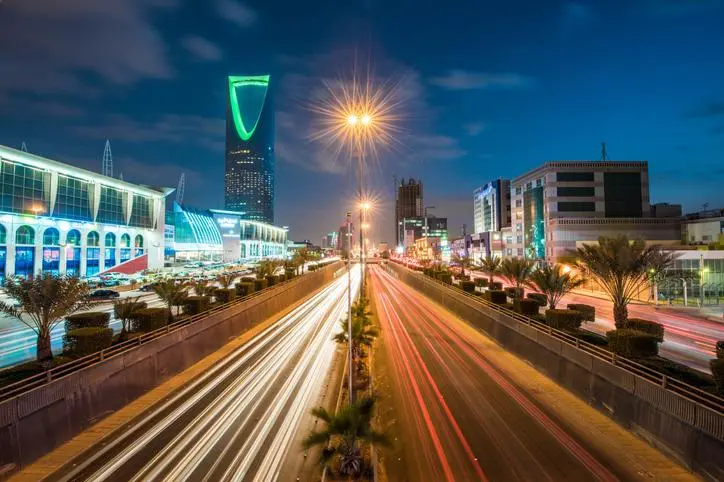PHOTO
The COVID-19 pandemic has dealt the global economy a harsh blow and the Saudi Arabian economy has been no exception, despite its strength. However, the pandemic has created a prudent spending culture in Saudi society in which the national economy is the long-term beneficiary, according to one expert.
Dr. Abdullah Al-Maghlouth, of the Saudi Economic Association, told Arab News that we would notice tremendous social changes as a result of the pandemic, the most important of which would be in the consumer behavior.
“The economic recession has already begun and that will influence consumers’ behavior, which, in return, will strongly affect all economic variables,” he said.
Everyone is aware of the remarkable shift that occurred in consumer behavior as much of the population entered the digital market, with health care companies, restaurants and nutrition companies having the highest sale rates.
Al-Maghlouth said: “People have turned into wise buyers who focus on health-related goods. Moreover, the Saudi markets will witness a significant drop in the prices, and people will find that many goods and services are falling in price.”
He believed the new consumer behavior would reduce individuals’ spending in an attempt to increase savings. After the crisis ends, the market will begin to send reassuring indicators that are hoped to bring people back to the market. “Prosperity will then return and people can enjoy a decent and stable life.”
IN NUMBERS
- EY survey findings: 68% of MENA consumers say that their consumption values have changed.
- 9% of MENA consumers plan to “get back to normal” with their spending.
- 29% of MENA consumers prioritizing the health of their families when shopping.
Saudi nurse Wafa Al-Shammari said that the bad experience of the virus had changed many of her shopping habits and made her aware of the importance of saving money.
“We used to spend too much money on things that we don’t really need. I used to go shopping with my two children to buy our monthly groceries,” she said. “The price of the candies and toys they picked out was sometimes half the total price we paid at the cashier.”
She added that she used to buy items that were not on her shopping list, when she found new or discounted products and decided to buy them without thinking — a common practice among most shoppers.
Al-Shammari said the seriousness of the pandemic has made her more cautious about the hygiene of her family.
“This, of course, made me allocate a monthly amount of money to buy sanitizers, face masks, medical gloves and even bleaches for cleaning the house, as I don’t know where the family members can contract the virus, and these items have become a priority. The experience has taught us how money should be wisely spent,” she said.
Ahmed Al-Zahrani, a retired police officer and a father of six, said: “Despite the hard experience the country has been going through due to the pandemic, people have learned important economic lessons. Many people have begun following spending plans to avoid financial setbacks.”
He stressed that his main concern is his family’s health and safety.
“What is a life of luxury when compared to good health? Why should I buy expensive products and then borrow money when I am in a desperate need? We should be prepared for the worst and do all we can to protect ourselves against mishaps, including diseases,” he said.
According to a survey conducted by consultants Ernst & Young (EY), 69 percent of consumers in the Middle East and North Africa (MENA) believe that the way they live has changed for the long term due to COVID-19.
The EY Future Consumer Index, which questioned 1,018 consumers from Saudi Arabia and the UAE, found that 84 percent of consumers declared that they have changed the products they buy, with a greater focus on value for money and an increased commitment to consume locally made products.
According to the survey, 68 percent said that their values have changed, and they look at life differently.
Al-Maghlouth said that the Saudi government has already taken a number of important decisions to confront the economic recession.
These efforts began when the country invited the G20 to a virtual global meeting. The conference, he said, succeeded in reaching an agreement whereby “the supply of oil would be reduced in the global markets so that oil would not be priced at a price other than its real value.”
The government also took steps to protect its national economy from slipping into recession. It supported the private sector by paying about 60 percent of its employees’ salaries and designed a special budget to support the private sector along with support for anti-coronavirus projects. It also warned the private sector against the consequences of ending the services of its employees, he said.
Al-Maghlouth added that the Saudi economy enjoys the confidence of both local and global investors.
“This confidence is capable of encouraging more foreign and local investments to activate economic processes and move forward with the mega projects without any delay or interruption, in fulfilment of the provisions of the Saudi Vision 2030,” he said.
Copyright: Arab News © 2020 All rights reserved. Provided by SyndiGate Media Inc. (Syndigate.info).





















